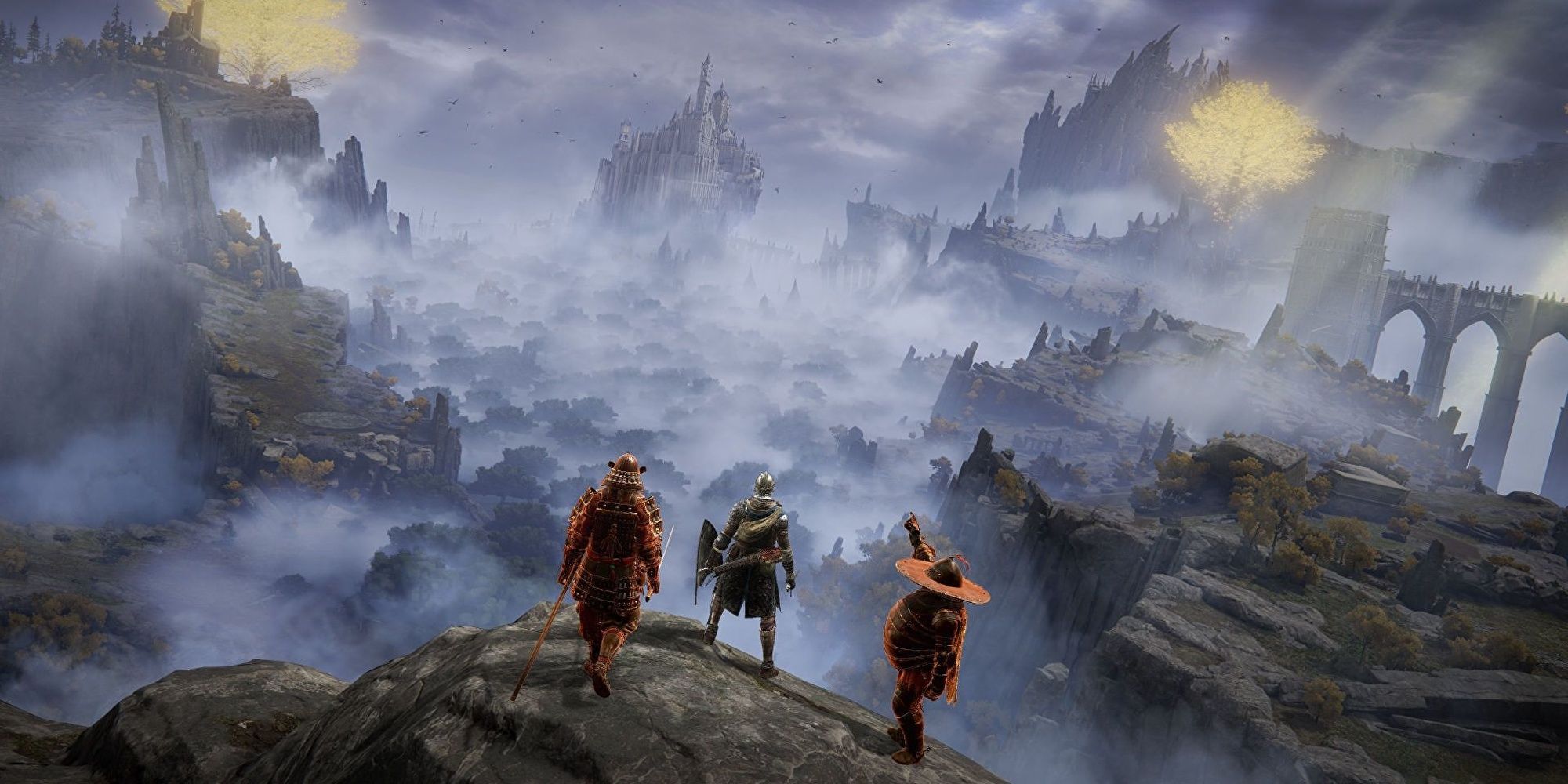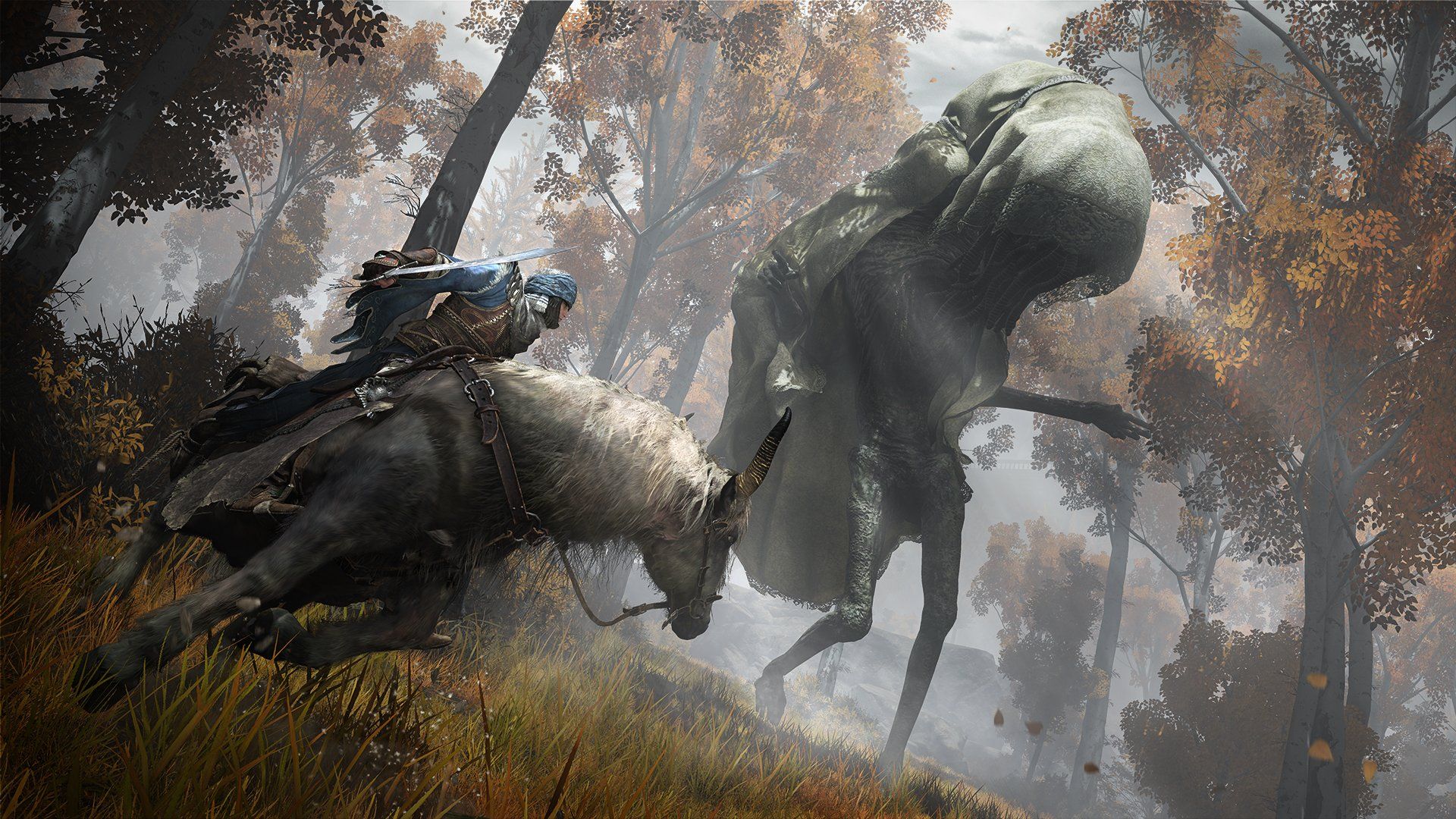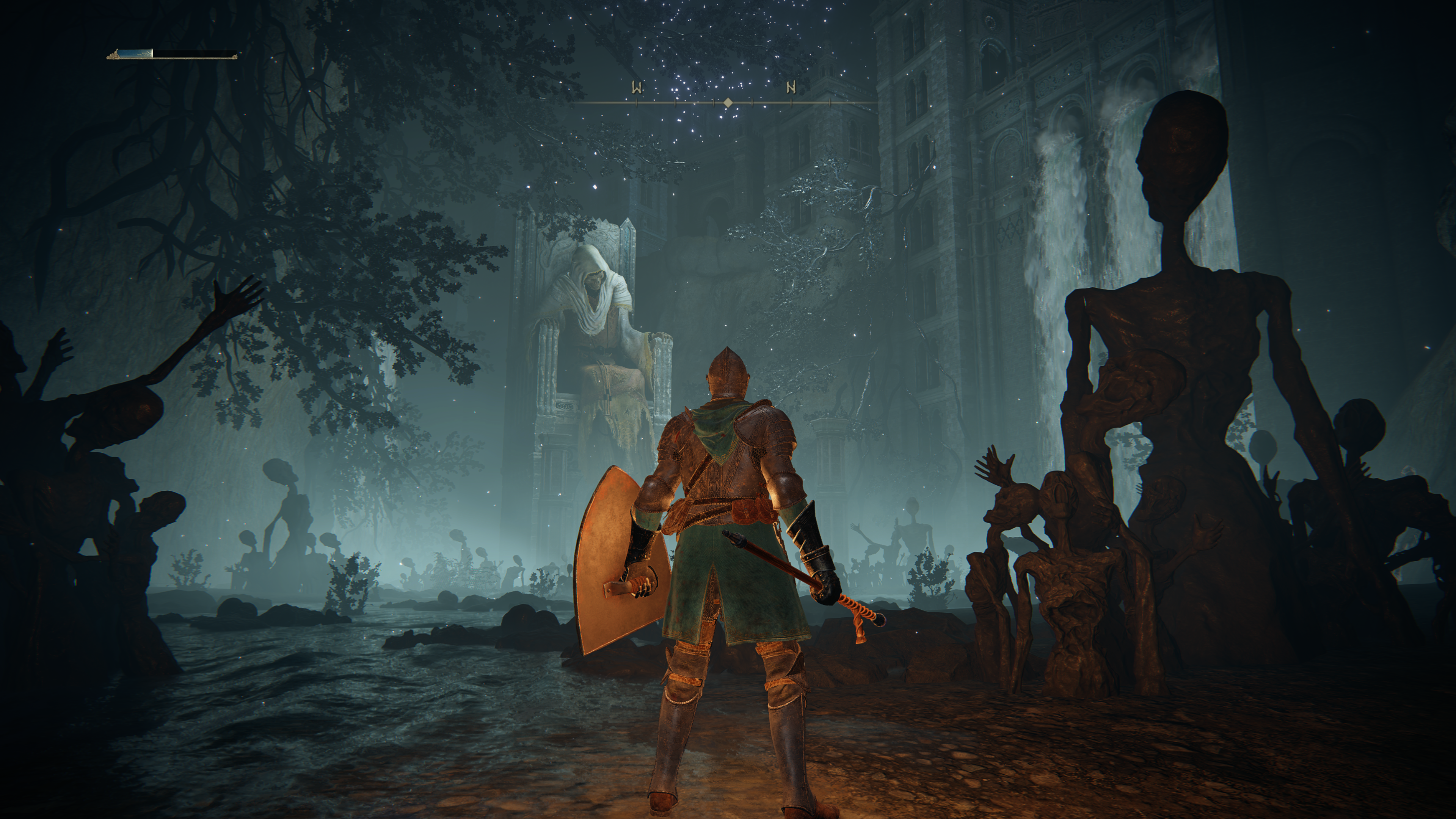There is a lot to unpack with the Elden Ring reviews. The short version is that the game reviewed very, very well. On top of our perfect score, the game is the highest reviewed game of all-time, and while that's a precarious position that could slip away slightly, it's clear Elden Ring will go down as one of the all-time greats. You'd think then that all of the chatter around the game would be positive, but I suppose you'd only think that if you had no idea of how the internet works. For anyone getting a little confused by all of the discourse, we're here to break it down gamer style.
First off, there's the issue of those perfect scores. What makes a perfect video game, and how does one accurately review a game. I have always been of the opinion that a review score needs to be your own personal opinion of a game merged with critical examination. For example, I love Pokemon Legends: Arceus. It's the best Pokemon game since HeartGold, and adds so many new flourishes to the stale Pokemon formula - we gave it 3.5 stars, and I stand by our score. Despite how great it is as a Pokemon game, most of its best elements are things other games have been doing for a decade. So when our reviewer gave Elden Ring a perfect ten, it was a mix of "I adore this game" and "this is FromSoftware's methodology refined and a significant upgrade on open world games."
That first part is crucial. Just because our reviewer adored it does not mean everyone will. Though you can apparently roam much more freely and skip out on difficult battles, it's still a FromSoft game. It's still hard. It still features very long battles where a high level of skill, precision, and endurance for dying over and over again in order to learn every phase are required. That's a gameplay loop that will put many players off. Some will hate it, and we all know they will hate it. Are perfect tens across the board misleading then? Can you call a game perfect if you know a significant chunk of the playerbase won't like it or even be able to play it?
I have no clear answer to that question. I'd suggest reviewing a game based on what other people might think is a recipe for disaster, but when you're the best reviewed game of all time, it's a fair question to ask. But then how many points do you take off? Do we take points from shooters for being too violent, do we take points from Madden because of American football's obtuse rules that game adheres to? One solution, since this is a FromSoftware game likely to attract newcomers, is to have a newcomer review it. Our reviewer has beaten every FromSoft game ever made, whereas I've only dabbled in the first Dark Souls. I plan to get Elden Ring. I'm the ideal candidate, as our Editor-in-Chief and an experienced reviewer, to have done a newcomer review, but I didn't consider it even for a moment.
The fact is this is a crucial game in the yearly release calendar, likely to be a huge contender for all the yearly awards and maybe even to be looked back on as one of the defining games of the generation. I don't think it serves TheGamer or our readers to have me give it 3 stars and say "yeah, bit too hard for me this one". Reviews are not just buyers guides, they are the first and most tangible piece of critical analysis a game gets. To have them done by someone who lacks the context the game is tied to, who does not speak the language of the players, and who will miss important features because they do not know what is important, does not make for a useful or worthwhile critical evaluation. Plus, if you actually read most reviews and don't just go off the numbers, you will be able to glean whether a game is going to be approachable for you.
That's another issue - approachability versus accessibility. In broad terms, approachability means how easily the game can be played by outsiders, how long it takes to pick up mechanics, and how high the skill ceiling is. Accessibility means how much the game does for disabled players. In discussions of famously hard games, both of these ideas get combined into 'easy mode', but there's a lot more to it. Some of Elden Ring's most interesting features, like the lack of a quest log, make the game more approachable but less accessible. For some disabled players, taking away that structure makes it actively worse. For non-disabled players, it may make it more immersive. The obvious solution is to make it optional, but when it comes to the review stage, how do you award or deduct points based on a brilliant new feature that makes the game better for you but harder to play for others? And should accessibility reviews, which focus specifically on how accessible the game is rather than any critical analysis of the game itself, be given the same weighting as standard reviews when it comes to critical reception?
Again, I have no answers, but these are the reasons a game can be universally declared perfect yet still seem highly controversial. Then, of course, there's the lead time. We got Elden Ring a week ahead of launch, and my understanding is most sites were in the same boat. This is about the typical lead time, but it’s not ideal, especially for a game of this size. Our reviewer spent over 30 hours in the game and felt her thoughts were solidified enough that she could critically evaluate it. A game like Elden Ring is impossible to truly complete anyway - there are so many hidden paths, divergent outcomes, and new reveals you can only be experienced after hundreds of hours and multiple playthroughs. When is enough? If our reviewer had sped through the main quest to hit credits, abandoning the entire world around her, would the score be more legitimate? Or less, because she'd ignored the game's biggest hook in order to hit credits faster?
That said, a week for a game of this size is not enough time, and it's not healthy for those involved. It's not crunch, as some have been calling it - journalists who report on devs enduring months of 12-hour, six-day weeks, sleeping under their desks with no end in sight, should know better than calling 'play this video game in a week' crunch. Still, it's not the best way to experience these games nor to evaluate them. It's certainly not as fun as many readers think it is. But I don't have a solution - I've reviewed plenty of games that have been patched during the review period or even in between the embargo and the overall release.
Earlier this year Dying Light 2 had a controversial review period when reviewers were criticised by players for hitting embargo, rather than waiting for a patch that would have fixed some of the bugs. We rarely review finished games, so getting them early isn't always a solution. Then again, we got two weeks with Horizon Forbidden West and the patches the game received were minor, so it’s possible.
There are some important issues being raised. Accessibility continues to be a major issue that gets overlooked too often, and games writers, especially freelancers for whom missing deadlines could mean losing significant income, rarely get enough lead time to comfortably review games. But when the arguments persist about what score somebody else gave a toy, I'm not sure why it matters so much. There's a war going on. Grow up.



